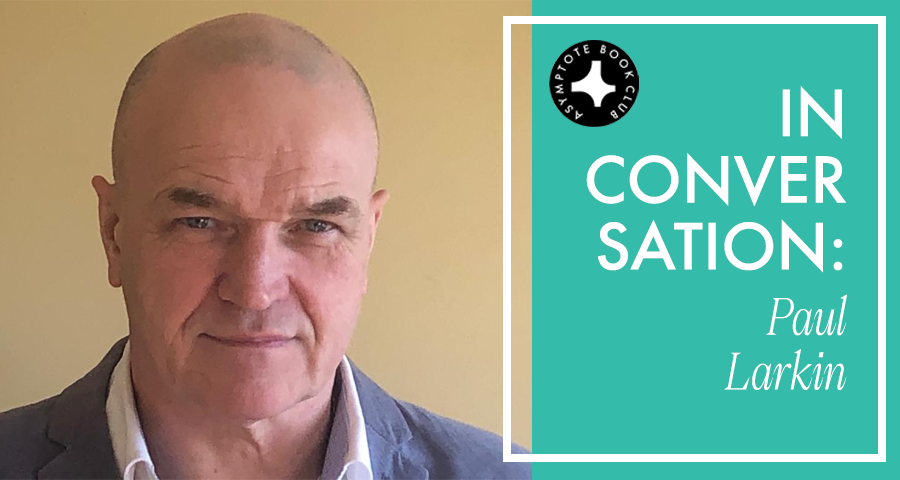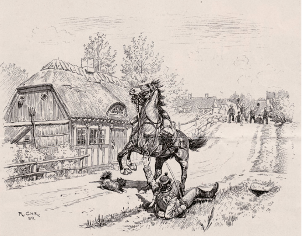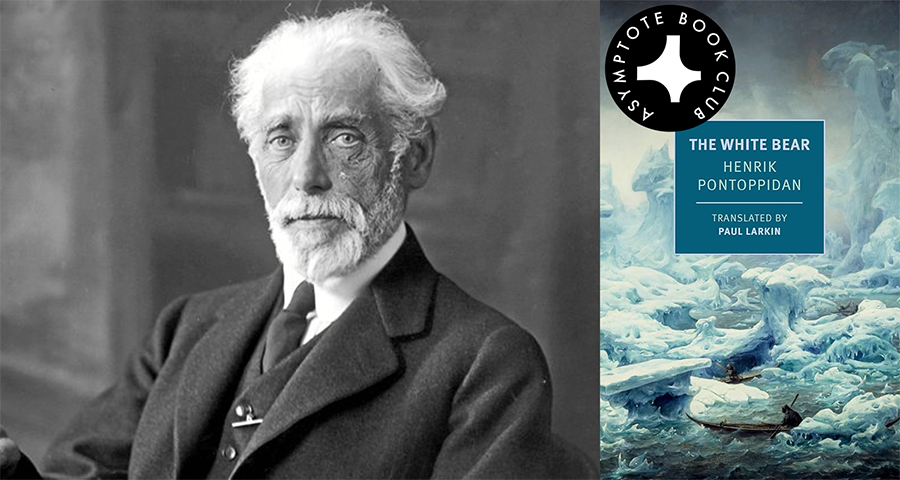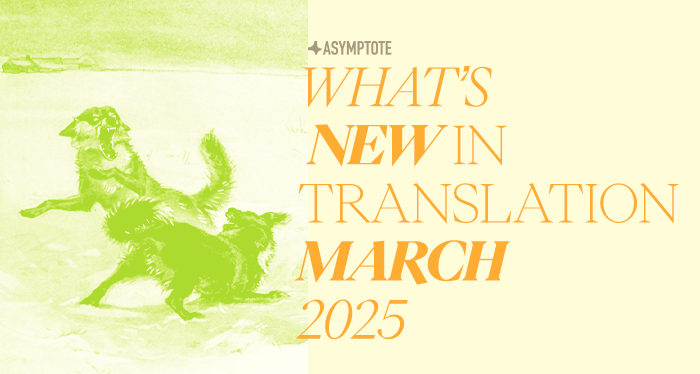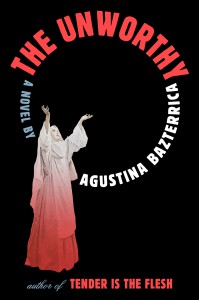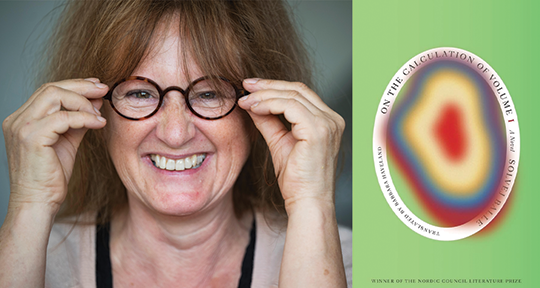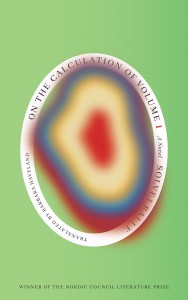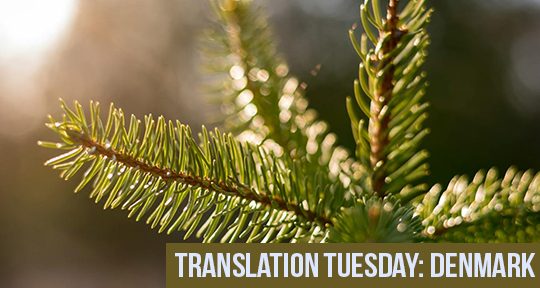Moments from the lives of small animals are captured and made into poetry by Peter Nielsen (tr. Matt Travers). In “A Little Understanding” a story emerges from tracks in thick snow. A mouse’s footprints meet those of something larger, and then the footprints disappear. Cooperation is surmised—an unexpected and heart-warming interpretation of the spoor. The titular bench of Nielsen’s second poem peeks out from a thicket of scenes and memories, where we see people together and birds in concert, each spreading messages with their bodies.
A Little Understanding
Animals help each other. It’s not always seen,
but if one goes out when there’s newly fallen snow,
you’ll often be able to follow a trail. You’ll see, for example,
the faint trace of a mouse that has come running.
Further on you may see another larger set of tracks
cross the mouse’s path. Often, you’ll now experience that the big
animal has helped the little animal on its way in the
cumbersome snow, since it’s only the big tracks
that continue. This is how the animals help each other.
A Parsley-green Bench
I anxiously greeted a friend who passed with the car window rolled down.
He registered me fleetingly and proceeded to stop in the middle of the traffic,
but I waved him on. Can you spread a message in any other way? A comforting
letter perhaps? Besides, my masseuse is waiting. And she doesn’t wait. She’s kind of there,
dawdling across the body, finding what the rest of us are looking for shortly before we begin
to search.
The episodes in one’s day like to go along, not across. One lives,
or goes feral in other ways. A bench peeks out from the edge of the forest.
The waders are flying up in formation, passing close together
in a rush over the sandbank. White undersides. After a lightning fast
twist of the body: black-grey. The moment after: white again.
Translated from the Danish by Matt Travers
Peter Nielsen is a Danish poet’s poet. Educated as an administrator in
the local counci’s wages department, Nielsen began to write full-time after earning the three-year Danish Arts Foundation Grant in 1980 for his first major poetry collection ‘Kan sparsommelighed redde proletariatet?’ (‘Can Economising Save the Proletariat?’). Since then, he has been extremely productive writer who has published over twenty poetry collections, half a dozen novels, a set of children’s books and is the Danish translator for several major poets of international repute, including Paul Celan and the Swedish Nobel prize winner, Tomas Tranströmer. He was awarded the Danish Arts Foundation Lifelong Honorary Grant in 1999, and was the recipient of the Adam Oehlenschlaeger, Emil Aarestrup, Herman Bang and Johannes Ewald Fund in 2016.
Yet despite critical renown, he has also proved extremely reluctant to play along with the literary promotions machine and is consequently largely unknown to the wider Danish reading public. Instead of engaging in public readings of his work, which he believes spoils a reader’s internal understanding of a poem, he lives with his wife in a distant country suburb of Aarhus and divides his time between writing poetry, translating literature and pursing a keen amateur interest in ornithology, with all three activities arguably being a part of a singular overlapping creative practice, as if his poetry is always only out there in the rushes, waiting for their time to take flight.
The poems here come from his later works. A LITTLE UNDERSTANDING comes from his 2003 collection ‘Livet foreslår’ (’Life Advises’, nominated for Nordic Council Literature Prize) and A PARSELY-GREEN BENCH can be found in his most recent 2020 collection ‘Inden årstiderne; Regnlys’ (Before the Seasons; Rainlight).
Matt Travers is a poet and translator whose works have featured in 3:AM magazine, Tripwire Journal, Firmament Magazine, Minor Literature(s), and Mercury Firs, among others. Originally from Huddersfield, England, he now lives and dwells in Aarhus, Denmark.
Read more from Translation Tuesdays on the Asymptote blog:




